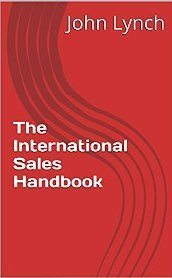The Bribery Act, the Foreign Corrupt Practices Act and the OECD Convention on Combating Bribery of Foreign Public Officials in International Business Transactions
When the Bribery Act 2010 came into effect in the UK, we invited a solicitor specialising in this field to give a presentation at our Sales Conference on what we could and could not do. After we’d listened to what she had to say, I asked if I could give an example of what actually happened. This is the example I gave:
“I’m in, let’s say, Alexandria. We have three containers on the docks and our Egyptian customer needs to get them out of there—if he doesn’t start work on his contract soon, he’ll face penalty charges. We walk into the docks office and present the documents that should allow us to clear the goods. The clerk says, ‘These documents are not in order.’ I know, and he knows, that there’s nothing wrong with the documents; I also know that he knows that I know that he knows … etc. I take a US$20 bill from my pocket (I keep a supply of them about me for just this purpose), put it on the counter (keeping my hand on it) and say, ‘I wonder if there’s anything we can do about that?’ The clerk eyes it and then stamps the documents (to say they are all right and the containers can be driven away) and puts them on the counter right beside my hand. I pick up the documents and the $20 disappears into the clerk’s pocket. We leave the office and call the transport company to move the containers to the customer’s yard.”
The lawyer said, “You can no longer do that.”
I’m afraid I laughed.
A tiny minority of Egyptians are quite astonishingly wealthy—the huge majority have nothing. When you meet the Operations Director of an Egyptian customer of significant size, try to remember that his salary probably has the buying power of a power tool rental depot manager in Madrid. You wonder why his salesman is driving a small, old car that’s falling to pieces? Because that’s all he can afford. So how much do you think the clerk on the docks takes home? Most Egyptian workers rely on tips, and that’s how the clerk will regard the $20 he pretty well forced you to give him—as a tip. If they don’t get tips, they may struggle to eat. When I give it to him, am I committing an offence under UK law? Yes, I probably am. I would also, in all likelihood, be offending against the American Foreign Corrupt Practices Act and the OECD Convention on Combating Bribery of Foreign Public Officials in International Business Transactions. Do I care? I do not. If handing over that $20 is against the law then Mr Bumble was right—the law is an ass.
The International Sales Handbook by John Lynch will be published by Mandrill Press in paperback and for Kindle on 1st November 2014. You can pre-order the Kindle version here; for more information on the paperback email admin@mandrillpress.com and ask to be put on the mailing list for our newsletter.






